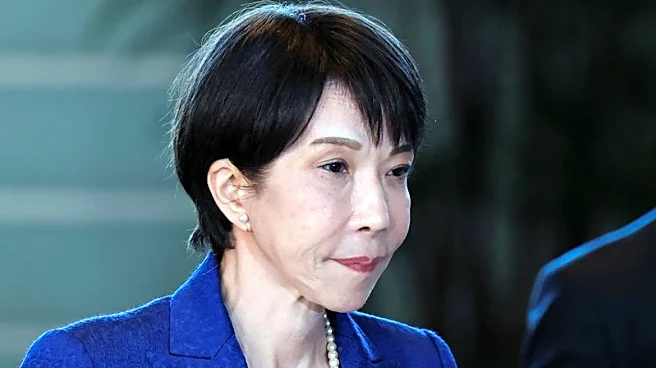What's Happening?
Dr. Kalilou Sylla has been appointed as the Head of the Economic Affairs and Agriculture Department at ECOWAS, effective October 1, 2025. He succeeds Ms. Massandjé Toure-Litse, who has been reassigned to other responsibilities by her country. Dr. Sylla, a citizen of Côte d’Ivoire, holds a PhD in Economics from Félix Houphouët-Boigny University in Abidjan and has been teaching there since 1997. With 27 years of professional experience, he previously served as Director General of Foreign Trade at the Ministry of Trade and Industry of Côte d’Ivoire, where he coordinated foreign trade policy and negotiated trade agreements. His extensive experience includes roles at the ECOWAS Commission and various pan-African organizations, focusing on macroeconomic, trade, and agricultural policies.
Why It's Important?
Dr. Sylla's appointment is significant for ECOWAS as it aims to strengthen its economic and agricultural sectors. His expertise in trade negotiations and regional integration programs is expected to enhance the competitiveness of agricultural sectors and facilitate the free movement of goods and people within the region. This leadership change could impact regional trade policies and economic partnerships, potentially benefiting member states by improving trade relations and economic growth. Stakeholders in the agricultural and trade sectors may see increased support and innovative financing opportunities under his leadership.
What's Next?
Dr. Sylla is likely to focus on implementing strategic planning and regional integration programs, leveraging his experience in managing projects funded by international partners like IFAD, the European Union, and the World Bank. His role may involve coordinating with regional organizations to advance economic partnership agreements and mobilize resources for agricultural development. The ECOWAS community and its partners will be watching closely to see how his leadership influences policy changes and economic strategies.
Beyond the Headlines
Dr. Sylla's appointment may also have cultural and ethical implications, as his leadership could promote sustainable agricultural practices and support for local farmers. His experience with pan-African organizations suggests a commitment to strengthening the capacities of agricultural actors, which could lead to long-term shifts in regional agricultural policies and practices.










